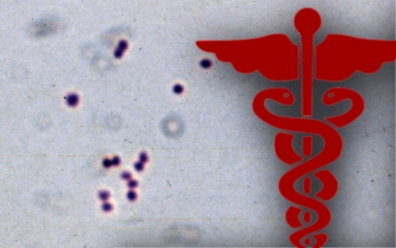
An undergraduate student at San Diego State University was hospitalized Tuesday with a probable meningococcal infection, the San Diego County Health and Human Services Agency reported today.
Initial testing strongly indicate that the student has meningococcal disease, so HHSA and SDSU Student Health Services are notifying known close contacts of the person and recommending that they receive antibiotics to prevent any possible infection. In addition, antibiotics are also recommended for potential contacts who attended specific events: the Delta Sigma Phi Formal, held Friday, April 12, from 5 to 11 p.m. at the Spark Encore Event Center; and the Delta Sigma Phi Social Event, which was held Saturday, April 13, from 9:30 p.m. to midnight, at the organization’s chapter facility.
The antibiotics will be available at SDSU Student Health Services at no cost today from 2 to 7 p.m. or Thursday from 9 a.m. to noon.
“Although more testing is needed to confirm that this student has meningococcal disease, the preventive antibiotics work best when they are given as quickly as possible, and it should be given regardless of whether someone has previously had the meningococcal vaccine,” said Wilma Wooten, M.D., M.P.H., county public health officer. “Antibiotics are only recommended for individuals who were in close contact with the infected person.”
A serogroup B meningococcal outbreak was identified at SDSU last September after three SDSU undergraduates contracted the illness. It is not known yet if this case is associated with that outbreak. All SDSU undergraduate students under the age of 24 are recommended to get vaccinated with one of the available vaccines for serogroup B (Bexsero® or Trumenba®).
“Students who have not started or completed the recommended meningococcal B vaccines should get vaccinated now,” said Dr. Wooten. “Everyone should know the symptoms of the disease and seek care immediately should they occur.”
SDSU students can be vaccinated during walk-in clinic times at student health services in the Calpulli Center on Tuesdays and Wednesdays from 2 to 4 p.m. or by making an appointment via the HealthyeConnect option on the student health services website.
Symptoms of meningococcal disease may include fever, intense headache, lethargy, stiff neck and/or a rash that does not blanch under pressure. Anyone with potential exposure who develops any of these symptoms should immediately contact a healthcare provider or emergency room for an evaluation for possible meningococcal disease.
The bacteria can be spread through close contact, such as sharing drinking glasses, eating utensils, cigarettes or pipes, or water bottles; kissing; and living in close quarters. The time between exposure to the disease and the onset of symptoms can be between two to 10 days. Individuals who have had close contact with the infected person should receive antibiotics to prevent possible infection.
Five cases of meningococcal disease have been confirmed in San Diego County residents this year, and 11 cases were reported in 2018.
Information about meningococcal disease may be found at http://www.cdc.gov/meningococcal/.







Comments
@ Twiggy
You wrote: "As an old timer in San Diego proper." Well, there just happens to be two groups in California that have been here a lot, a lot longer than you, namely, Native Americans, and Mexicans. If fact, there are families, not Mexican; but can trace their ancestry back directly to Spain.
And you really don't do your homework. Infectious diseases have always been with us and some of the new ones have nothing to do with immigrants, unless you think mosquitos need to get their passports validated and the mosquitos, for instance, carrying West Nile virus did not originate in the Americas, just hitched a ride over the Atlantic.
@ Twiggy
You really should do your homework. About 10% of adults are carriers of the bacteria in their nasopharynx.{even you could be a carrier] As an exclusively human pathogen it is the main cause of bacterial meningitis in children and young adults, causing developmental impairment and death in about 10% of cases. It causes the only form of bacterial meningitis known to occur epidemically. It occurs worldwide in both epidemic and endemic form. N. meningitidis is spread through saliva and respiratory secretions during coughing, sneezing, kissing, chewing on toys and even through sharing a source of fresh water.
I guess your dislike of anyone not pure American, whatever that is, just ends up with you wanting to blame immigrants for everything. Well, you could be harboring the bacteria and, for some reason, if it becomes virulent or someone near you has a weakened immune system, and it is proven you were the source, if such happened, should we deport you???
Origin of communicable disease